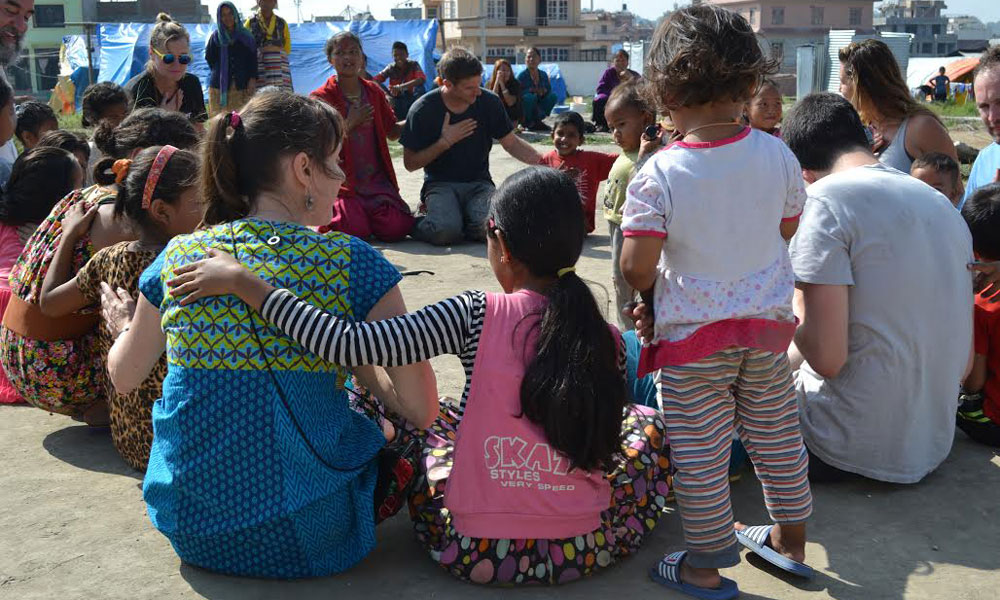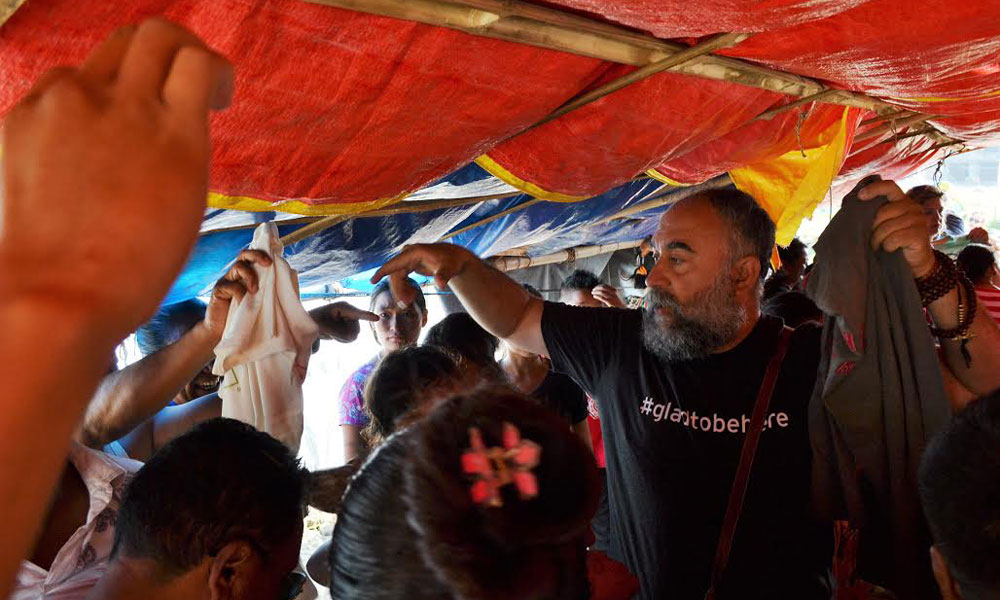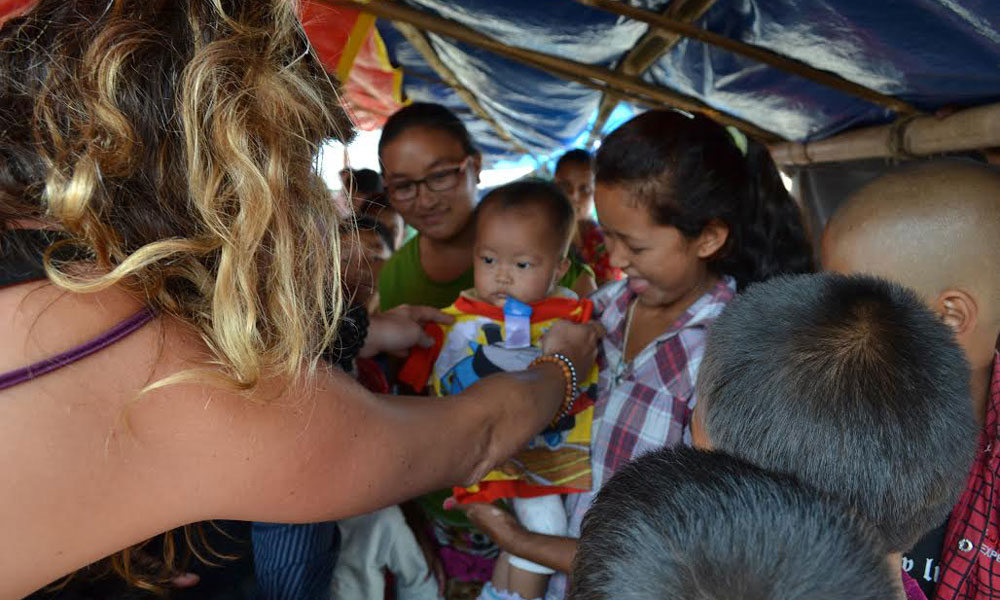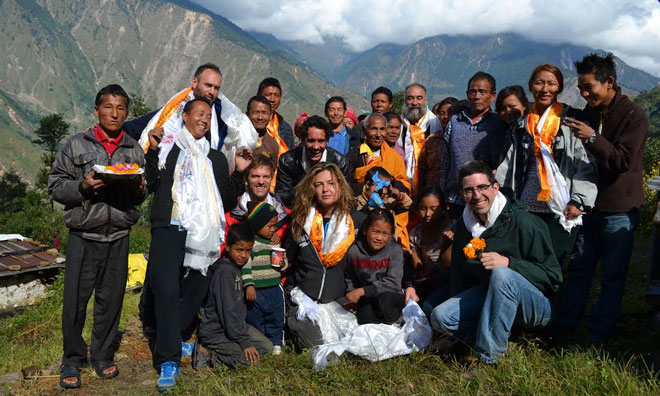
Teach Your Members and Staff Leadership by Showing Them the World
How supporting international volunteer work within your organization can teach leadership skills that your members and staff will rely on for a lifetime.
In 2015, I went to Nepal for three weeks and came back a more productive, enthusiastic, caring professional striving for success.
I traveled with a small nongovernmental organization, 108 Lives, a project of the Three Jewels Outreach Center in New York City. The nonprofit, which emphasizes giving unconditionally and connecting global communities, was focused on bringing relief to those affected by the earthquake that hit Nepal last April. We used stress-relief tactics devised by the international mental health nonprofit Second Response to combat possible post-traumatic stress disorder in the villagers.
Along with funding the rebuilding of a school, raising money for an orphanage, and delivering clothing, we conducted workshops in a remote village, a refugee camp, and a city orphanage. The results were rewarding, as we saw people take a breath and enjoy themselves.
I’m often an extrovert, but it was difficult to find my footing with a group of brand-new friends when I was 7,500 miles away from home. And yet during my time in Nepal, I grew from observer to participant to team member to leader.
Imagine it as a crash course or refresher in leadership skills. There are cultural, personal, professional, and social lessons one can gain while volunteering abroad.

Hector Marcel of 108 Lives hands out clothing donations at a refugee camp in Kathmandu. (photo by Patrick deHahn)
Respectful Dialogue
A beautiful meeting in a remote mountain village—Phulping, bordering China’s Tibet Autonomous Region—taught a lot about how to approach others and conduct meetings in their most basic form.
I remember sitting in the only school building they had available as a workspace. There were two other buildings, and together they created a school campus. They still had roofs overhead, but the walls and windows had crumbled. There were about 10 of us in a circle, each planted on scrappy plastic or wooden seats, discussing how to help the village rebuild and move forward.
As an observer, it was fascinating to see how 108 Lives approached the situation with delicacy, understanding, and patience.
Volunteers didn’t go barging in, telling the villagers what they should do. Instead the organization asked the school principal and a few leaders and village elders (with the help of a translator) how the funds the organization had raised could best be used. The nonprofit stayed out of the decision-making process, only offering options, and was able to go back to the capital city of Kathmandu with a plan the village was happy about—all thanks to a healthy meeting strategy that respected open discussion.

Volunteers donate clothing to refugees in Kathmandu. (photo by Patrick deHahn)
Deeper Connections
There’s a lot to learn about connections, decisiveness, and culture while volunteering internationally.
Working in sometimes uncomfortable settings nurtures deeper connections with others. I spent almost every meal with fellow volunteers. I slept in a wooden house in the mountains with 108 Lives members. We chatted about everything, from travel to work to life.
It’s a kind of bond you don’t get everywhere—and it’s one you learn from. You’ll learn generosity, kindness, appreciation, patience, and trust. The people you meet will get to know you for who you are and push you to grow as an individual. They’ll back you up as you work to fulfill your responsibilities—and they’ll also call you out on your faults.
Additionally, you quickly learn to work with others, because everyone’s participation is essential. Pulling off projects in a country unlike home makes you think on your feet. Not every convenience is at hand, and work requires more flexibility, planning, and creative thinking than the Western world requires. It makes you look at work, projects, and goals in new ways.

The 108 Lives group with villagers of Phulping, Nepal. The author is at bottom right.
The benefits Back Home
How do I know that I’ve grown as a leader, and even as a freelance writer? Since returning to the States, I’ve planned more meetings, communicated or collaborated with others more frequently, attended more social and educational events, and become more professionally proactive with setting goals and completing tasks. I’m practicing many of the skills I learned abroad.
The benefits are huge. Associations just have to make global travel a priority. It’s not impossible.
For example: An association could sponsor a traveler (or a few) to encourage leadership growth. Staff or volunteer leaders could nominate candidates, and an application process could determine whether they represent the association well and would benefit from the experience.
Or an association could fund some or all of a member company’s international travel—perhaps with the help of a foundation or an annual award. Within the office, associations could put on a raffle to allow their own employees the opportunity to work abroad. Partnerships could be formed with nonprofits that already organize their own volunteer trips. Associations could even organize their own travel program.
The opportunities are endless, the experiences are borderless, and the benefits are boundless.
Volunteers with 108 Lives put on a "playshop" for children at a refugee camp in Kathmandu. (photo by Missy Rogina)






Comments